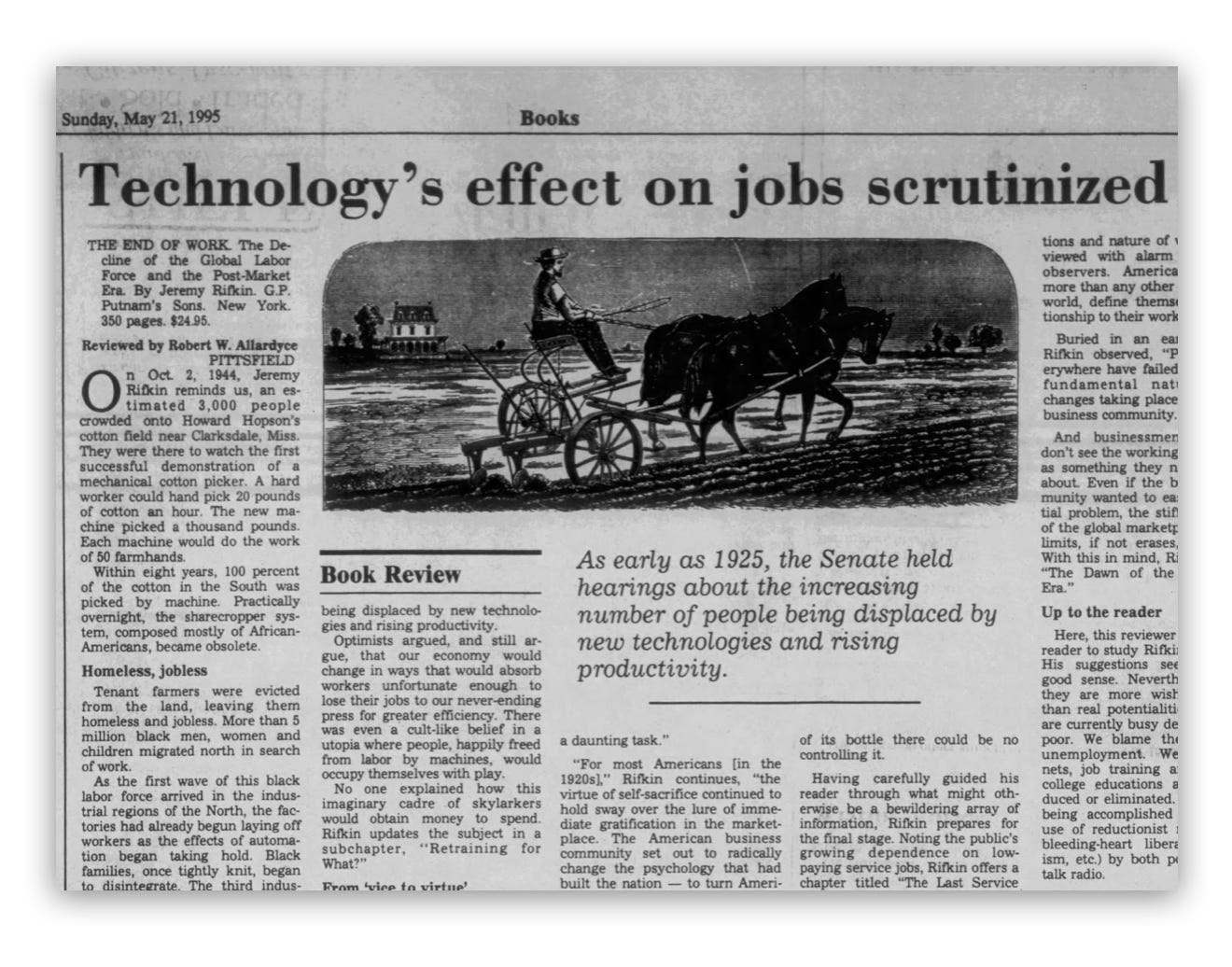20240609
“Writing—I can really only speak to writing here—always, always only starts out as shit: an infant of monstrous aspect; bawling, ugly, terrible, and it stays terrible for a long, long time (sometimes forever). Unlike cooking, for example, where largely edible, if raw, ingredients are assembled, cut, heated, and otherwise manipulated into something both digestible and palatable, writing is closer to having to reverse-engineer a meal out of rotten food.” - David Rakoff
People: True live starts at 60. On having more interesting ideas. Spread of mental disorders? The age of the generalist. Making the coffee. The battle for attention.
Life: Whales have an alphabet (transcript of a podcast). Eagles avoid Ukraine air zone.
Business: Food marketing and weight loss drugs. Putting stuff in offline mode is a business. Is litigation a way to stable climate?
Cities: designing for autism, childs, older people, or for everyone. GenZ and cities?
Random: Paper objects (zines?) from antistatic. Engineers futurists. Three of the universe oldest stars are just around the milky way.
AI: Using SciFi to improve AI. AI outperforms humans at identifying mental states. Support for research. Mapping a LLM neurons. ChatXi-PT. The Council of the EU approved the AI Act on 21 May. US/EU regulation comparison. A roadmap to AI policy - US (PDF).
Microsoft: AI is there, now comes the hard part (full PDF).

Wings of Resilience
The world was a peculiar place in 2024, where eagles had become unintentional symbols of resilience. The Greater Spotted Eagles, once familiar with the air above Ukraine, had started taking detours, evading artillery fire like it was an annoying summer shower. GPS data revealed their new migration routes, which now resembled the erratic paths of a toddler wielding a crayon on a wall. Scientists speculated that these wise birds, wise as they were, had developed a knack for avoiding conflict—perhaps they’d been reading the news too often.
Meanwhile, the rapid advances in AI had sparked a new sort of governance debate. The European Union and the United States were locked in a verbal tango, each trying to outdo the other with extensive legislation and executive orders. It was as if two grandmothers were arguing over whose lasagna recipe was best—one rigid and traditional, the other experimental and a tad chaotic, yet both desperately trying to avoid the inevitable culinary disaster that might ensue if they didn’t get it right. AI was being hailed as a savior, a demon, and everything in between, depending on the headline you read.
In the midst of all this, a quirky project called the Print Object emerged as a rebellion against the digital tide. Every year, subscribers received a newsletter and a unique paper-based object, an analog gesture in a world increasingly dominated by ones and zeros. It was a refreshing reminder that not everything had to be pixelated and processed; some things could still be tangible and messy, like a first draft of a novel scribbled on napkins during an existential crisis. It was akin to trying to cook without a recipe—delightfully chaotic and often yielding unexpected results.
And then there was the food industry, reshaping itself under the weight of new weight-loss drugs, like a butcher trying to sell vegan sausages. Consumers were eating less, and companies scrambled to adjust, offering smaller portions as if they were negotiating with a toddler who insisted they only wanted one bite of everything. The restaurants that thrived on excess were suddenly rethinking their life choices, perhaps wishing they’d invested in salad bars instead of all-you-can-eat buffets.
As if that weren’t enough, scientists had also discovered the SASS stars—ancient cosmic relics that had survived the universe's turmoil, much like the eagles dodging bullets below. These stars were like the wise old men of the galaxy, keeping secrets of the early universe tucked away, waiting for curious minds to decode their stories. They represented a hope that even amidst chaos, there existed a lineage of wisdom and survival.
Amidst all this, a peculiar figure named Agatha sat in her local café, pen in hand, contemplating her next story. She wanted to weave together the lives of these eagles, AI, and ancient stars into a narrative that explored humanity’s relationship with nature and technology. She scribbled furiously, her thoughts as organized as a library after a tornado had decided to learn the Dewey Decimal System.
But the words flowed, and she smiled. Perhaps the greatest story of all was not about the eagles or the stars, but about those tiny actions we take—like changing a migration route or printing a newsletter—that ripple through the cosmos, shaping the future in ways we might never fully comprehend. After all, in a world where AI could chat with presidents and whales could compose symphonies of clicks and whistles, who’s to say what was truly possible?
And thus, with each stroke of her pen, Agatha continued to dream of a world where resilience, humor, and curiosity could coalesce into something beautiful—an imperfect draft of a story still waiting to unfold.

